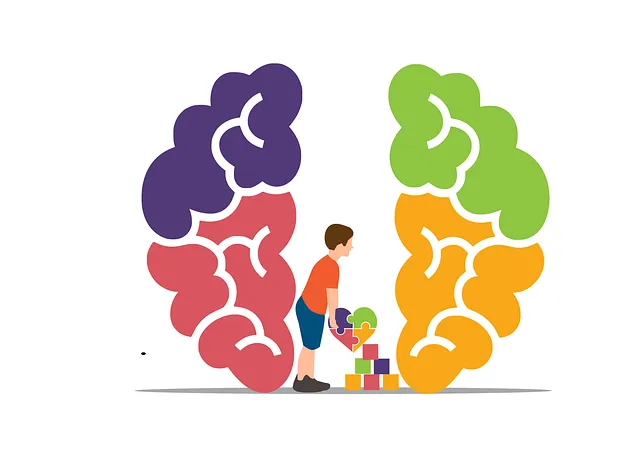The Kaiser Permanente mental health center in Westminster is renowned for its crisis intervention strategies, combining evidence-based practices with patient-centered care. These approaches, including stigma reduction efforts and tailored Mental Illness Education Programs, stabilize individuals during acute crises like suicidal ideation or severe depression. The center's unique model integrates conflict resolution, risk assessment, stress reduction techniques, and early intervention to promote both short-term recovery and long-term mental well-being, as reflected in positive Kaiser Permanente mental health center reviews Westminster.
“In times of crisis, effective intervention can make a profound difference. This article explores crisis intervention strategies with a focus on the Kaiser Permanente Mental Health Center in Westminster, known for its impactful approach. We delve into the center’s role and the guidance it provides, offering valuable insights from a leading healthcare provider. Through an analysis of successful strategies and reviews, we uncover best practices that have proven effective, providing a comprehensive understanding of crisis care.”
- Understanding Crisis Intervention: A Brief Overview
- The Role of Kaiser Permanente Mental Health Center in Westminster
- Strategies for Effective Crisis Intervention
- Reviews and Best Practices: What the Data Says About Kaiser Permanente's Approach
Understanding Crisis Intervention: A Brief Overview

Crisis intervention strategies are essential tools for addressing acute mental health crises, such as suicidal ideation or severe depression. These interventions aim to stabilize individuals and provide immediate support while connecting them with long-term care options. At Kaiser Permanente mental health centers, like those in Westminster, professionals are trained to offer effective crisis intervention services tailored to each person’s unique needs.
Understanding crisis intervention involves recognizing the importance of empathy building strategies and Mental Illness Stigma Reduction Efforts. By fostering an environment of compassion and understanding, healthcare providers can help individuals feel heard and validated during their most vulnerable moments. Additionally, well-designed Mental Health Education Programs can empower people to recognize warning signs in themselves or others, encouraging early intervention and better outcomes. These comprehensive approaches not only address the immediate crisis but also contribute to reducing the impact of Mental Illness Stigma in communities.
The Role of Kaiser Permanente Mental Health Center in Westminster

The Kaiser Permanente Mental Health Center in Westminster plays a pivotal role in providing crisis intervention services and fostering mental well-being within the community. This healthcare center is renowned for its comprehensive approach to mental health support, offering a range of resources and programs tailored to meet diverse individual needs. With a dedicated team of mental health professionals, the center focuses on not only treating acute crises but also empowering individuals with tools for long-term resilience building.
One of its key strengths lies in the integration of evidence-based conflict resolution techniques within its crisis intervention strategies. By equipping individuals with effective communication and negotiation skills, the center promotes healthier relationships and enhances coping mechanisms. Moreover, Kaiser Permanente Westminster prioritizes risk assessment as a crucial component of its services, ensuring that mental health professionals are adept at identifying potential risks and implementing appropriate safety measures. These comprehensive initiatives contribute to the overall goal of supporting community members in navigating crises and fostering resilience.
Strategies for Effective Crisis Intervention

In the event of a crisis, effective intervention strategies are paramount. At Kaiser Permanente mental health centers, like those in Westminster, professionals employ evidence-based practices to mitigate acute situations and promote long-term well-being. One key strategy involves Risk Assessment for Mental Health Professionals, who meticulously evaluate factors such as the individual’s history, current circumstances, and potential triggers to anticipate and prevent escalating crises.
These interventions often encompass Stress Reduction Methods tailored to address specific needs. This may include cognitive-behavioral techniques, mindfulness practices, or support groups designed to foster coping mechanisms. Additionally, centers like Kaiser Permanente prioritize depression prevention through proactive measures such as early intervention programs, regular check-ins, and accessible resources, aiming to equip individuals with the tools necessary to navigate future challenges effectively.
Reviews and Best Practices: What the Data Says About Kaiser Permanente's Approach

At Kaiser Permanente mental health centers, like the one in Westminster, a review of best practices and data reveals a unique approach to crisis intervention that emphasizes holistic care. The center’s success lies in integrating evidence-based practices with an environment fostering emotional healing processes. This strategy involves not just addressing symptoms but also focusing on the individual’s cultural background and sensitivity within mental healthcare practice.
The Kaiser Permanente model prioritizes patient-centered care, tailoring interventions to meet diverse needs. Positive reviews highlight the center’s ability to create safe spaces that encourage open dialogue and build trust, especially among underserved communities. By combining clinical expertise with a deep understanding of cultural nuances, Kaiser Permanente’s Westminster mental health center sets a benchmark for effective crisis intervention guidance.
The article has explored crisis intervention strategies, highlighting the vital role of organizations like the Kaiser Permanente Mental Health Center in Westminster. By employing evidence-based practices and fostering a culture of care, Kaiser Permanente demonstrates its commitment to effective crisis intervention. The center’s approach, backed by positive reviews, serves as a model for other institutions seeking to enhance their crisis management capabilities. Understanding these strategies is essential, especially in the context of mental health support, and can lead to improved outcomes for individuals facing crises.






